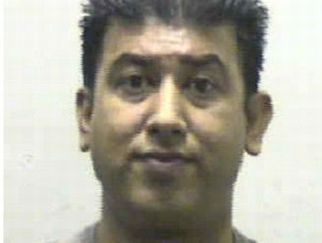 Cooling product company Zalman has gone bankrupt following the discovery of some somewhat unorthodox actions by its CEO and vice presidents.
Cooling product company Zalman has gone bankrupt following the discovery of some somewhat unorthodox actions by its CEO and vice presidents.
The South Korean company was thought to be doing well, as its products were under the bonnet of rather a lot of PCs.
The reason for its bankruptcy is not anything to do with its own products or performance, in fact this news shocked Zalman employees. What appears to have happened is that the company has collapsed is due to the actions of its parent company Moneual, and its CEO and vice presidents.
Moneual CEO Harold Park, and vice presidents Scott Park and Won Duck-yeok, have, or so it is alleged, spent the last five years producing fraudulent documentation relating to the sales performance of Zalman.
They had been giving inflated sales figures and export data for Zalman’s products to get loans from the bank, it’s alleged.
By increasing sales and exports, Park and his associates were able to secure bank loans totalling $2.98 billion, it’s alleged.
According to The Korea Times, Moneual failed to repay its huge export bonds that matured on October 20, 2014, and filed for bankruptcy. Zalman’s stock price also began a quick downfall. However, the numbers just do not add up – Moneual has been repeatedly reporting major profits, with their 2013 annual report being nearly 1.2 billion dollars in sales and over 100 million dollars in profit. Regulators investigated and it appears that there was evidence of a well-designed corporate fraud.
Moneual allegedly acquired Zalman in 2011 as part of the fraud. They are said to have forged Zalman’s export and accounting documents, greatly overstating their export and income reports, in order to become eligible for huge bank loans. The employees knew that the company was a sham but, despite the unearthly profit reports of the past few years, no government officials noticed.
Moneual received about $620 million in loans from several Korean banks and another 275 million dollars as export credit from the Korea Trade Insurance Corp, making the owners of Moneual richer by nearly $900 million.
The company’s owners have been arrested and, alongside many top and mid-level executives of the company, are now facing prison if convicted of the charges. However Harold Park has US citizenship and his brother has Canadian, and there’s some concerns that Korean law could face trouble prosecuting them.
No one expects Zalman to survive. The company does hold a number of patents relating to cooling and fan noise reduction technology and it seems likely a patent sale will happen eventually. However, these are unlikely to be worth $3 billion.
 Software king of the world, Microsoft, has been helping Inspector Knacker of the Birmingham Yard finger the collars of some software fraudsters.
Software king of the world, Microsoft, has been helping Inspector Knacker of the Birmingham Yard finger the collars of some software fraudsters.









